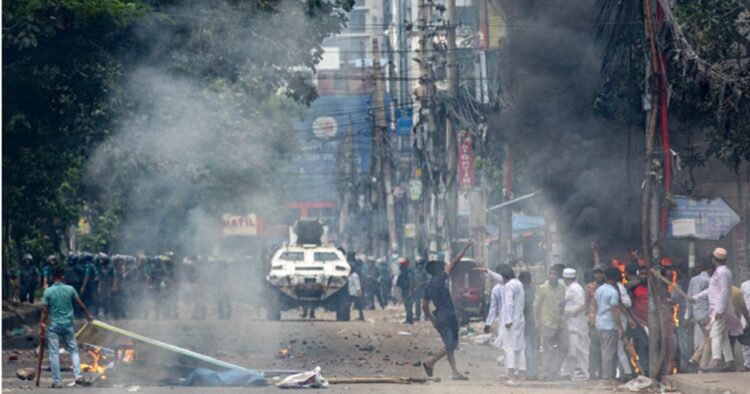In a decisive and controversial move, the Awami League-led 14-party alliance has announced a ban on the radical group Jamaat-e-Islami and its student wing, Chhatra Shibir. This decision, rooted in the group’s alleged involvement in violent actions and historical opposition to Bangladesh’s independence, is expected to stir significant political and social upheaval.
The announcement was made during a meeting chaired by Prime Minister Sheikh Hasina at her residence. Awami League General Secretary Obaidul Quader confirmed the ban, citing Jamaat-e-Islami’s involvement in hijacking a recent student protest, which reportedly led to the deaths of over 200 people.
Jamaat-e-Islami’s antagonistic stance towards Bangladesh’s independence and its support for the Pakistani Army during the liberation war has long been a point of contention with the Awami League.
The group’s controversial role during the 1971 Liberation War has fueled enmity between the party and the current ruling regime. The decision to ban Jamaat-e-Islami and Chhatra Shibir is seen as an extension of this ongoing political and ideological conflict.
Its predecessor, the Jamaat-e-Islami Pakistan, strongly opposed the independence of Bangladesh and break-up of Pakistan. In 1971, paramilitary forces associated with the party collaborated with the Pakistan Army in mass killings of Bangladeshi nationalists and pro-intellectuals. Both have been working together for Pan-Islamism in their country respectively, opposing the secular ideology of Bangladesh’s government.
Moreover, the decision has drawn attention to Jamaat-e-Islami’s controversial history, including rulings by the International Crimes Tribunal that convicted the group for its role in atrocities committed during the 1971 war.
The tribunal’s judgments revealed that Jamaat-e-Islami was instrumental in forming auxiliary forces for the Pakistani occupation army, such as Al-Badr, Razakar, Al Shams, and the Peace Committee, which were involved in numerous war crimes against the Bengali population. Since a 2008 high court verdict, Jamaat-e-Islami has been banned from contesting elections, yet it continued to exert political influence by supporting the Bangladesh National Party-led opposition alliance. The current ban is likely to impact the political landscape in Bangladesh significantly and may lead to further demonstrations and unrest.

















Comments